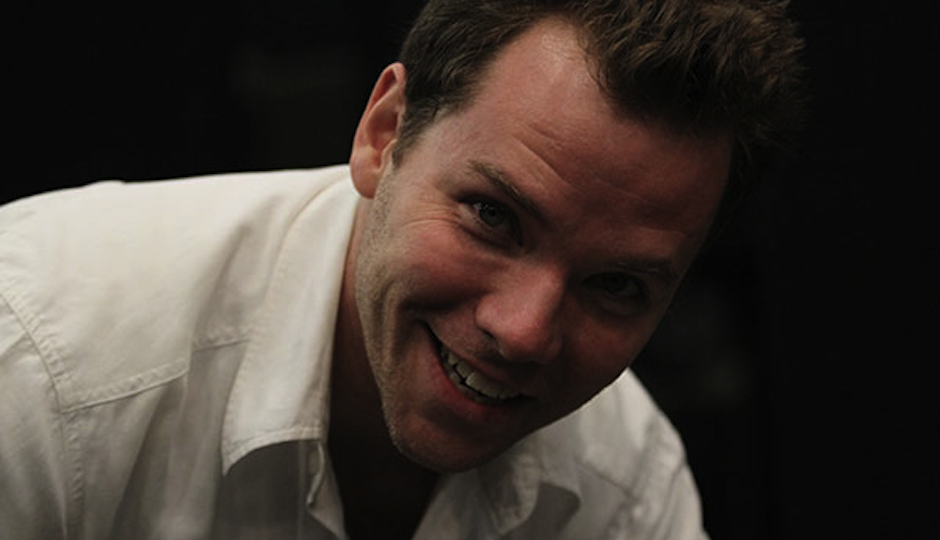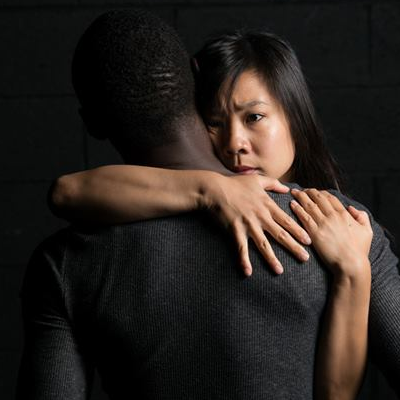Playwright Chad Beckim Reacts to Inquirer Critic’s Claims of Racism

Chad Beckim
“Who is to tell me what I can and cannot write? Who are you to tell me that?”
I caught New York City playwright Chad Beckim on a stressful morning. The author, whose work Lights Rise on Grace just opened at Azuka Theatre, was upset over Inquirer critic Toby Zinman’s review of his play, in which she wrote that the show could seem homophobic and racist based on his development of several characters in the script.
Zinman wrote: “If one didn’t know that Azuka ‘loves outsiders’ as Kevin Glaccum’s director’s note says, Chad Beckim’s play would seem to be both homophobic and racist. Also, classist, as everybody’s poor, which apparently (yet again) means all families are cruel and abusive to their children. This judgmental play seems to endorse the prison mantra both [male characters] learn: ‘Admit, take the blame, apologize.'”
“I am really startled by all of this,” Beckin says in response. “I don’t know how you could possibly connect these dots. This entire thing is mean spirited and judgmental.”
Beckim’s conundrum is one that isn’t new to the world of art, and especially to the world of performance: Who has the right to tell certain stories? And if a writer is not of a particular community, do they have the ability to communicate those stories with a level of authenticity?
The play itself is, indeed, touchy. It primarily concerns a young Chinese woman, Grace, who falls in love with a man of color, Large. He attacks his brother after being called a “faggot” and ends up in jail. There, Large meets Riece and forms both a sexual and emotional relationship with him.
There are certainly several stereotypical tropes in the play: Grace makes mention of having to work at a laundromat growing up and when Large first meets her and tries to speak to her in Chinese, he says he had to eat a large number of egg rolls at a local Chinese restaurant to learn the language. Furthermore, as a gay man, I was uncomfortable with the depiction of a hypersexual Large, who uses gay sex as a way to escape from his wife and, ultimately, his own reality. Our own critic, David Fox, also talked about moments that felt “perilously close to racial stereotyping.”
I chatted with an audience member who has seen the play twice since it opened at Azuka. He was there opening night with his partner, and returned last evening. “I came back, because I wanted to see if I was missing something the first time,” he said, adding that his partner did not want to join him for a second viewing.
So why would Beckim, a straight white male, decide to even tackle these issues?
“I was attracted to stories that weren’t my own,” he says. “I’m from the whitest state in the country: Maine. There were two Asian kids in my school and, briefly, one black kid. That was it.”
“Nevertheless, I don’t think that, as a white man, I can’t write about cultures that aren’t my own. … There’s a sense that you have to be delicate, that you have to approach things cautiously. But if you know your shit and you know the people around you, I don’t see what the problem is.”
Beckim was so distraught over the reaction to his play that he reached out to fellow author and friend Robert O’Hara, author of Bootycandy, who gave him this advice: “He told me, ‘You have to understand that you are a straight white guy who is writing in territory that other straight white guys won’t go near,'” Beckim recalls.

A scene from “Lights Rise on Grace.”
That “territory” includes an extensive examination of America’s prison system.
“I’ve been in a few prisons and the thing that is so remarkable about them is how loud they are,” he says. “They are so loud, and everything is so scary, from the guards to the sounds of the doors. People are fascinated by the system because it seems so far removed, but there are so many kids who are touched by it in one way or the other.”
Beckim recalls living with a family in Harlem from 1999 to 2001. They had six children and the first two were products of the prison system.
“So, when you stop to think about it, a third of the kids did time,” he says. “It is scary and remarkable that the things I got away with as a white guy, my black friends didn’t get away with.”
There’s also the theme of men of color who are on the “down low” with their sexuality. Even after the character Large gets out of jail, he continues to have both sexual and emotional affairs with men, despite the fact that he marries Grace.
“Men get out of the system but continue their affairs,” says Beckim. “For some, the act of putting on a condom acknowledges the fact that they are gay, so they don’t use them. They remain closeted and go home to their wives and girlfriends.”
After I talked to Beckim, I went to see the play, and asked director Kevin Glaccum and the cast, Bi Jean Ngo, Ashton Carter, and Keith Conallen, about the racial and homophobic accusations. They all seemed to feel the notions are ridiculous.
“As an artist, I could give two shits about what critics are saying,” says Glaccum. “But as a producer, I do have an issue if this perception is going to keep people from coming in the door.”
Ngo essentially agreed. “Are they listening to the language of the characters?” she adds. “Do people know these communities and how they speak?”
The “perceptions” don’t seem to be stopping Beckim: He tells me that he’s really interested in writing a play about a transgender kid. “I met this boy and assumed that it was a boy,” he says. “But he was born a girl.”
I wanted to stop Beckim, to tell him, “Well, he is a boy if he says he’s a boy,” but I could tell he sort of slipped. He quickly followed up by saying, “Even my wife told me that I’m venturing into very dangerous territory.”
So, can a cisgender straight white guy tell a story that isn’t his own? That’s a question that will, undoubtedly, never quite have an answer. “As long as you respect people, we should collect these stories and be honest and human about them,” Beckim says. “You approach it with respect and you do your homework. That is the key.”
“Lights Rise on Grace” runs at Azuka Theatre through November 22. For tickets and more information, click here.
Keep up to date with Ticket’s local arts and events coverage. Here’s how:


